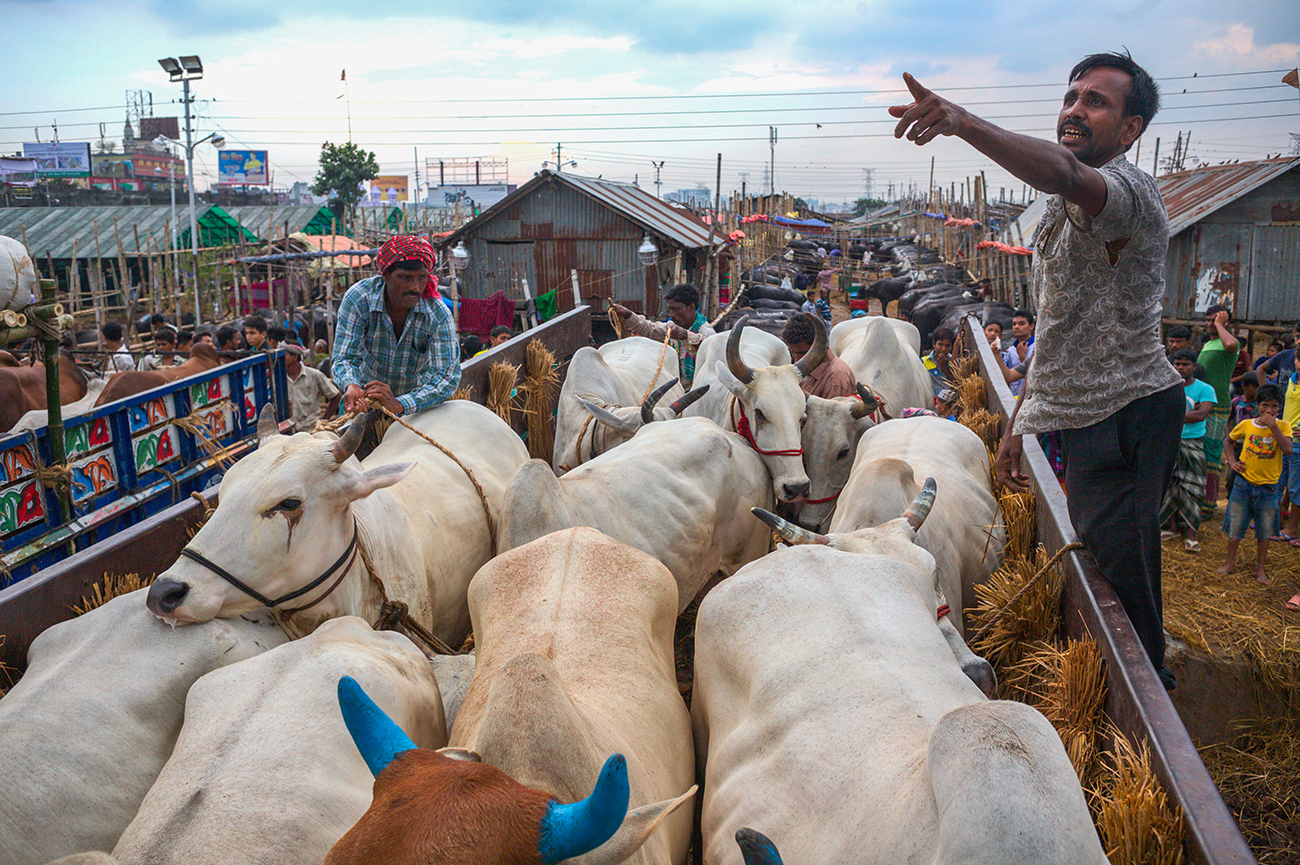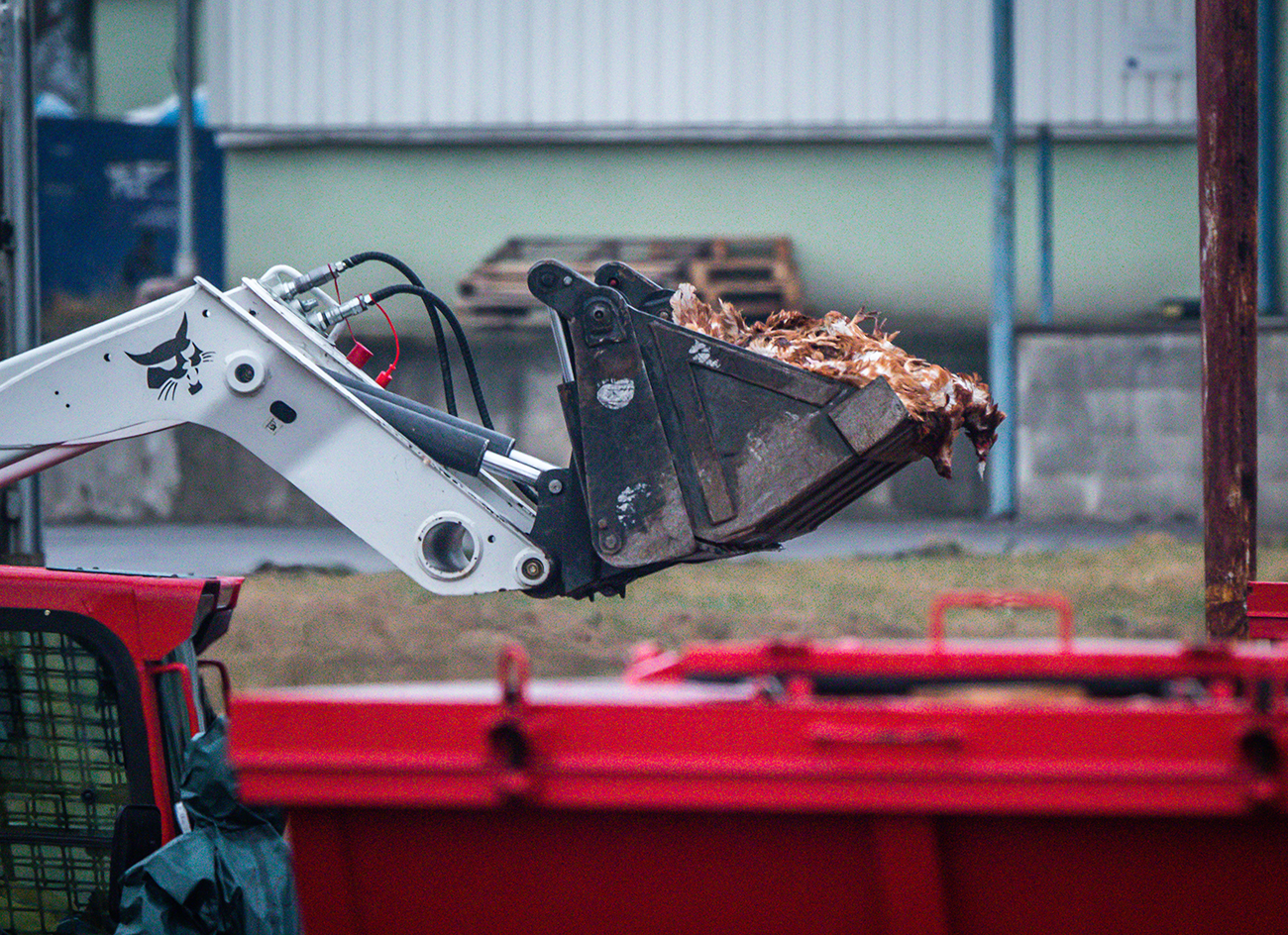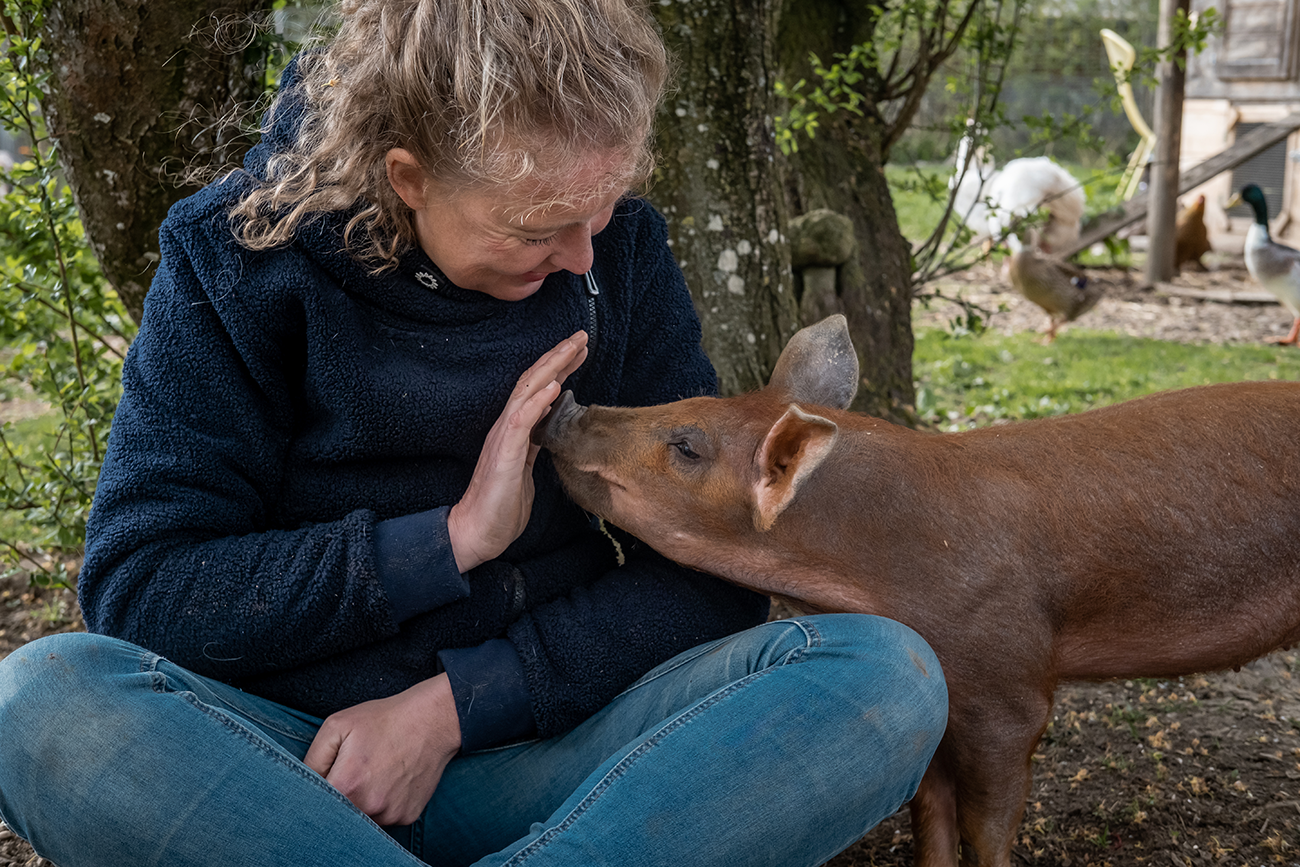Jeff Sebo, an Associate Professor of Environmental Studies at New York University, has established himself as a prominent figure in the fields of animal and environmental ethics. His latest book, “The Moral Circle“, set for publication in January 2025, explores the ethical implications of expanding our moral consideration to include a broader range of beings. This interview delves into his background, motivations, and insights into the evolving challenges and responsibilities we face in relation to nonhuman beings.
Vegan
Dr Philip J. Sampson FOCAE, writer and lecturer on animals and animal ethics explores John Calvin’s teachings on animals and considers how we might apply them today in making our food choices.
Poorva Joshipura, Senior Vice President of International Affairs for PETA UK, discusses her latest book Survival at Stake, reflects on our moral responsibility towards animals and explains how animal agriculture is behind some of the biggest threats facing humanity.
Tell us about yourself and why you feel so passionately about animal advocacy
I started volunteering with PETA US when I was 16 and became a permanent employee there at 23. So, I’ve been part of the PETA family in some capacity for almost two-thirds of my life!
I became vegetarian as a teenager after a friend challenged my choice to eat a chicken burger for lunch. She had started to question eating animals and got me thinking, too. She and I both went vegetarian and later vegan together. She works for PETA US.
Here’s what really sealed the deal for me: when I first joined PETA as a staff member, I had the opportunity to visit a slaughterhouse in India along with representatives of the country’s leather industry. India exports leather goods to the UK, US, and other parts of the world. The Indian leather industry was under pressure because PETA entities had released an exposé showing that cows and buffaloes sent to slaughter were being crammed onto vehicles in such high numbers that their bones broke or they suffocated. Many died en route. At the slaughterhouse, I saw animals being cut apart while they were still conscious. As a calf was thrown to the floor to be killed for shoes, his eyes met mine. His throat was slit in front of me, and I made a mental promise to him that while I couldn’t save his life, I would spend mine saving the lives of as many animals as I could.

Christian Faesecke / We Animals Media
What inspired you to write Survival at Stake?
I wrote this book because many people don’t realise that human wellbeing is intertwined with that of other animals. For example, meat, egg, and dairy production is driving the climate catastrophe and various forms of pollution as well as health threats from zoonotic diseases (which are transferred to humans from other species) and antibiotic resistance. COVID-19 likely originated at a live-animal market, as did severe acute respiratory syndrome (SARS), and HIV and Ebola disease are thought to have first been transmitted to humans when they hunted other primates. Furthermore, law enforcement experts today recognise that cruelty to animals is often a precursor to murder and other violent crimes against humans.
I have been affected by several of these key crises: I became ill with COVID-19 before the roll-out of the vaccine, I lost a dear friend to an AIDS-related illness, and I was in Mumbai, India, when floods killed over 1,000 humans and countless other animals. If we don’t change our current trajectory, more of us will have stories about how our meddling with animals and nature has caused personal strife – if we even live to tell them.
Finally, I wrote Survival at Stake to provide food for thought about solutions – ones that I hope readers and policymakers will be inspired to put into action right away. As with many of these issues, we have limited time to effectively change our current course.
What are the most pressing crises the world currently faces?
There are numerous key crises threatening human wellbeing. Among them is the climate catastrophe. According to the United Nations’ Food and Agriculture Organization, the animal agriculture sector is responsible for nearly one-fifth of human-induced greenhouse gas emissions.
Also, most emerging diseases that have affected humans over the last decades – a whopping 75% – are zoonotic, meaning they spread to humans from other animals. Worryingly, the frequency of such events and the variety of pathogens involved have been accelerating. Zoonotic diseases include severe acute respiratory syndrome (SARS), HIV, Ebola disease, various strains of bird and swine flu, and likely COVID-19. We need only ask ourselves what’s changed recently that would increase humans’ likelihood of catching diseases that affect other species. The answer is simple: our intensified and relentless meddling with nature by factory farming, killing wildlife, and encroaching on the habitats of wild animals. This includes when forests are flattened to grow crops for animal feed or to use as grazing land for animals raised for their flesh or skin.

Lukas Vincour/WeAnimals Media
Factory farms are able to exist because antibiotics are used, among other reasons, to keep animals alive in filthy, disease-prone conditions. Around the world, almost 75% of anti-microbial drugs on the market are used to rear animals for meat, eggs, and dairy. That means far more antibiotics are used on farmed animals than on humans. The overuse of these drugs is contributing to antimicrobial resistance and the development of superbugs – when medicines needed to treat illnesses from bacteria, viruses, fungi, and parasites in humans become less effective or stop working altogether and new, resilient forms of infections arise.
To what extent do humans have a moral responsibility towards animals?
While I believe we should care about animals because they have inherent worth, our moral responsibility towards them must also include taking care of the planet and ourselves because human, planetary, and animal wellbeing are intertwined. Humans, of course, are animals.
Today, ethologists confirm many resemblances between humans and animals – from whales to invertebrate creatures like bees. They describe these and other animals as sentient, intelligent beings who express emotional states.
Research reveals that bees appear to dream, chickens are clever and cunning, pigs can be taught to play video games, and fish form friendships. Animal behaviourists also tell us that cows grieve and octopuses experience emotional pain. Videos on the internet show us that dogs will risk their own lives to save that of a loved one.
By establishing similarities between humans and animals in my book, I hope readers will be less surprised that the wellbeing of animals is intertwined with our own.
Are there connections to be made between human and animal wellbeing?
Human and animal health are inextricably linked. With so many similarities between humans and other animals, it’s little surprise that our wellbeing is so connected with theirs – or that the diseases and conditions that affect them can impact us, too. We need only look at recent diseases like COVID-19 – which is largely believed to have first infected humans at a live-animal market – to understand this interrelationship with jarring clarity. Most virologists believe the virus, like severe acute respiratory syndrome (SARS), first spread to humans from animals due to the confinement of stressed wild animals in filthy, crowded conditions prior to their slaughter.
Bird flu and swine flu also spread and mutate amid the unnatural and unsanitary conditions inherent in the factory farming of chickens and pigs. The 2009 H1N1 swine flu pandemic killed up to 575,000 people in the first year alone, and the recent highly pathogenic strain of bird flu H5N1 – which has a 60% mortality rate in humans – has been decimating populations of mammals caged on fur farms. As a result, the World Health Organization has issued a warning that the virus might adapt to infect humans more easily.
Animals’ well-being is connected to our own in other ways, too. For instance, leather production has been linked to various types of cancer, skin diseases, and respiratory illnesses in tannery workers.
The way we treat animals reflects the state of society, too: the US Federal Bureau of Investigation considers crimes against animals a warning sign that a perpetrator will likely be violent towards humans.

Sabina Diethelm / We Animals Media
What needs to change if we are to tackle the challenges we currently face?
We must reject speciesism – the belief in human superiority – and accept that we are also animals irrevocably interconnected to other species, from the largest elephant to the smallest bee. Once we realise that we are a part of nature and stop holding dominance over it, we can take the necessary steps for the betterment of all the planet’s inhabitants.
How can individuals take action in their daily lives to help bring about change?
The simplest and most important action is treating animals as we ourselves would like to be treated.
If you are going to do one thing to help yourself, animals, and the planet, try eating vegan. University of Oxford researchers found that it is the “single biggest way” an individual can reduce their environmental impact. They found that not eating meat and dairy can reduce an individual’s carbon footprint from food by up to 73%. Each vegan also spares the lives of nearly 200 animals a year simply by not consuming them. And the Academy of Nutrition and Dietetics, which is “the world’s largest organisation of nutrition and dietetics practitioners”, has confirmed that “plant-based diets are more environmentally sustainable than diets rich in animal products because they use fewer natural resources and are associated with much less environmental damage”. It adds encouragingly, “Vegetarians and vegans are at reduced risk of certain health conditions, including ischemic heart disease, type 2 diabetes, hypertension, certain types of cancer, and obesity.”
I share many other ideas on how to help bring about change in the final chapter of my book.
 Poorva Joshipura is the author of Survival at Stake (2023) and For a Moment of Taste: How What You Eat Impacts Animals, the Planet and Your Health (2020). She is the Senior Vice President of International Affairs for People for the Ethical Treatment of Animals (PETA) Foundation UK.
Poorva Joshipura is the author of Survival at Stake (2023) and For a Moment of Taste: How What You Eat Impacts Animals, the Planet and Your Health (2020). She is the Senior Vice President of International Affairs for People for the Ethical Treatment of Animals (PETA) Foundation UK.
Survival at Stake is available at all good bookshop. For more information.
Vegan clergy members from across the UK explore Christian perspectives on vegan and animal issues in this unique six-part video series.
The priests consider faith-based reasons for caring about animals and address pressing concerns surrounding animal cruelty in the meat and dairy industries, the environmental crisis, human food security and much more.
They also reflect upon the highs and lows of being a Christian vegan in ordained ministry and share stories from their personal journeys.
Dr Lisa Kemmerer scholar, animal activist and founder of the educational and vegan organisation, Tapestry, explores Christian perceptions of animals and offers advice for those considering veganism.
Laura Wright, Professor of English at Western Carolina University, introduces The Vegan Studies Project, which explores veganism as an identity and ideology, and considers its depiction in literature, the arts, popular culture, and the media.
Fr Terry Martin, a vegan and Catholic priest, reflects upon his passion for animal advocacy and urges Christians to think carefully about their relationships with God’s creatures.
Caryn Ginsberg, author, strategic planner and educator outlines her five key steps towards more effective and sustainable animal advocacy.
Veganism, dizzying in the speed of its growth, is now ubiquitous on restaurant menu options, billboards, newspapers and television. The vegan message, with concerns over animal suffering and environmental degradation at its heart, has struck a chord with many Christians. Subsequently, discussions about veganism are becoming more common among people of faith. Whether it be a light-hearted exchange or heated debate, in person or on social media, a question which often arises in conversation is “but didn’t Jesus eat meat?”
Deanne Thomsen, an experienced Outreach Manager with expertise in Public Communications, reflects upon the similarities between vegan activism and Christian evangelism and shares her knowledge of effective and sustainable outreach.

